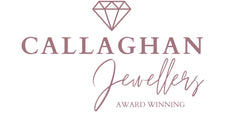How to Protect Skin From Allergic Reaction to Jewellery
It can be more than just frustrating if a piece of jewellery is irritating your skin, it can become painful, and in some cases, the irritation can become severe and spread across other areas of the skin. The potential harm of an allergic reaction is best to be avoided if possible.
Usually, most jewellery reactions are due to the nickel in some pieces of jewellery.
Nickel
Nickel is an alloy metal that is used a lot in jewellery. Nickel is often used as a base metal with gold or silver plating. Sometimes people incorrectly believe their allergy is to gold or silver. But it is actually a reaction to the nickel that can sometimes be used as a trace element that helps strengthen jewellery.
It is very difficult to detect whether a piece of jewellery has nickel in it by examining the piece with your eye. Nickel testing kits can be acquired from local pharmacies. These kits can detect whether nickel is a component metal of a piece of jewellery without gaming or damaging the piece's quality.
Protecting Your Skin
If you suspect you have a nickel allergy, it is best to get it confirmed by a dermatologist. You can determine whether you have a nickel allergy by a simple patch test that dermatologists carry out regularly. Once confirmed, there are several steps you can take to ensure your jewellery does not irritate your skin.
- Purchase jewellery that is labeled hypoallergenic.
- There are white gold alloy alternatives that use palladium, silver, or other white materials instead of nickel.
- If you are piercing your ears or other body parts, ask for a stainless steel needle to be used. Any earrings should be made from stainless steel or 18-24 karat gold
- Jewellery made from stainless steel, sterling silver, 18/24 karat gold, or polycarbonate plastic will be nickel-free.
- You can add plastic coverings for earring studs that contain nickel.
If you have a sentimental piece that contains nickel and irritates your skin, you can get it plated in a non-allergenic meal such as rhodium or platinum. The plating will provide a barrier between your skin and the nickel. However, this plating will wear over time, and you will need to get it re-plated occasionally.
Hypoallergenic Jewellery
Any reputable jewellery store or piercing studio will be able to provide documentation to accompany the jewellery that lists the metals used in the piece's construction. Do not be afraid to ask the jewellers questions about any piece and whether it is hypoallergenic.
Wherever possible, it is recommended to wear jewellery that does not contain nickel instead of getting a barrier metal plated onto the jewellery. If you do have a nickel allergy using leather or cloth watch straps is a good alternative.
18 or 24 karat gold does not contain nickel in their construction and is therefore safe for nickel allergies.
Suppose you have cut out nickel use, and you are still getting an allergic reaction to specific pieces of jewellery. In that case, it is worth seeking medical attention from your local doctor or dermatologist.
